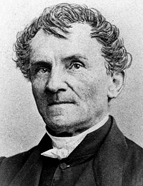

Histoire de Portugal, depuis sa séparation de la Castille jusqu’à nous jours... also saw, at least since its reprint in 1845, a developed final chapter containing information on historical events that took place between 1481 and 1836, divided unevenly. Due to the enthusiasm aroused by the French translations and adaptations of Schaefer’s work, the Portuguese edition was launched in 1842 in three volumes (covering the period from 1095 to 1433), with a fourth volume published in 1843 (up to 1481): that is, respecting the chronological restriction of the 1840 edition by Parent-Desbarres, translated from German by Soulange-Bodin. The Portuguese translation of the text was the responsibility of José Lourenço Domingues de Mendonça, at the time employed in the accounting department of the Hospital de São José, who became head of the accounting department of the Northern Railway Company (Luís Reis Torgal, “A história de Portugal vista de fora” [The history of Portugal seen from outside], in Op. cit., p. 347). However, in this case too, the quality of the translation seems to have greatly displeased the reading public, at least judging by the criticism that appeared in the press, again in the Revista Universal Lisbonense (in issue no. 27 of that publication, dated 27 April 1842, in an article signed by M.L. Nunes Mascarenhas, pp. 323-24). He ended by stating that an alternative translation was being completed, based on “the German original itself”. Who was this translator: Varnhagen?
Inocêncio Francisco da Silva gives us an exhaustive description of the translation of the work that José Lourenço Domingues de Mendonça published between 1842 and 1843 under the title História de Portugal desde o começo da monarquia em 1095 até à época actual... In the four volumes that make up the work, the amount of material written by the translator is enormous, totalling more than five hundred pages. However, the following volumes, V to XIII, have a new title, which legitimises the co-authorship assumed by Domingues de Mendonça, as the adapter of the work into Portuguese and compiler of historical material that he considered relevant to what Schaefer had written: History of Portugal from the beginning of the reign of King John II (1481) to the present day: to serve as a continuation of the translation by Dr. Henrique Schoeffer [sic], organised by.... It is therefore a completely different work, in which the texts are exclusively by the Portuguese author. Volume IX, published in 1846, is dedicated to the Inquisition. The following year, 1847, the work was interrupted at the end of the reign of King Pedro II (1706) for financial reasons. Inocêncio regrets this fact, considering that, if completed, it “would have remained, at least, a vast and well-stocked repository of facts and documents, some unpublished and others little known,” correctly referring to Domingues de Mendonça as the “compiler” of these materials (Inocêncio Francisco da Silva, Dicionário Bibliográfico Português..., volume IV, 1860, pp. 423-24).
This work is financed by national funds through FCT - Foundation for Science and Technology, I.P, in the scope of the projects UIDB/04311/2020 and UIDP/04311/2020.
